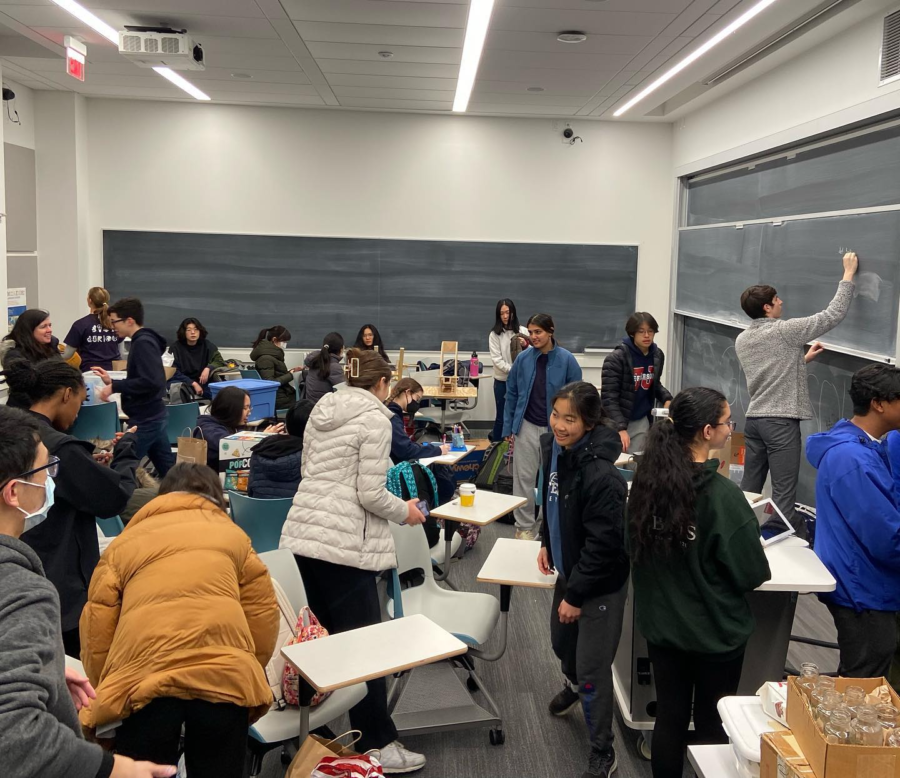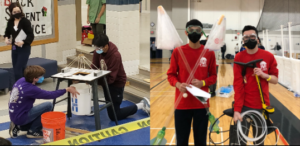Science Olympiad wins second in Carnegie Mellon invitationals
Members of the Jefferson Science Olympiad team get ready for the invitationals tournament at Carnegie Mellon. The team worked together during preparation and when competing. “You’re with at least one partner for all your events so it’s not like you’re just studying on your own,” Cox said. “You really have to be team oriented.”
February 15, 2023
The Jefferson Science Olympiad team competed at Carnegie Mellon on Jan. 20, in the invitationals round. As one of the first tournaments of the season, and the first in-person event since 2020, expectations were high as they worked to reach their previous accomplishments.
“I feel like it’s certainly a lot of pressure because we want to live up to the standard that we’ve upheld in the past,” Science Olympiad member Zumi Rieske, a junior, said. “It’s expected of us by other schools that since we were doing well, we’re going to keep doing well.”
With over 100 applicants, the application process is highly competitive between students to make the official TJ Science Olympiad team. 45 members are accepted and split into three different teams, which compete in tournaments.
“We work in 15 member teams and each person has 3 of 4 events, which are either study events where you take a test, or build events where you build some sort of device and use it to achieve whatever that goal is for the event,” Rieske said.
Leading up to a competition, preparing for the events while managing regular coursework can be challenging.
“It’s hard to procrastinate on some of these things and it can be stressful when you get up close to competition dates, “ Riekse said. “You’ll slack off for a few weeks before, and maybe do a little bit, but then the next two weeks you really have to put the pedal to the metal and study unless you want to be cramming everything the week of. “
Amidst pressure from earlier successes, the team worked hard to prepare, and performed accordingly at Carnegie Mellon invitationals. Winning second place overall and numerous medals in each division, they had a strong start to the season.
“We ended up medalling in every event which is really fantastic,” Science Olympiad captain Emma Cox, a senior, said. “I don’t think anyone expected that. It shows how we’re very balanced across all the topics so we have a good strong base to build up for the rest of the season.”
Unlike other olympiads, Science Olympiad is known for its broad range of events, from cryptography to astronomy.
“With other olympiads, you really focus on one topic, but for Science Olympiad, you get a much broader sense of topics other than what your usual specialty is,” Cox said.
The team’s experience at Carnegie Mellon invitationals was valuable for the team’s progress during the rest of the season.
“Carnegie Mellon is historically very competitive, so it was good to have a sense of how we are compared to other teams from across the country, not just from Virginia, ” Cox said.
The Science Olympiad team looks forward to future tournaments and the enjoyment they will bring.
“It’s fun and challenging because we know that we’re a good team and we’re gonna keep succeeding,” Rieske said.









